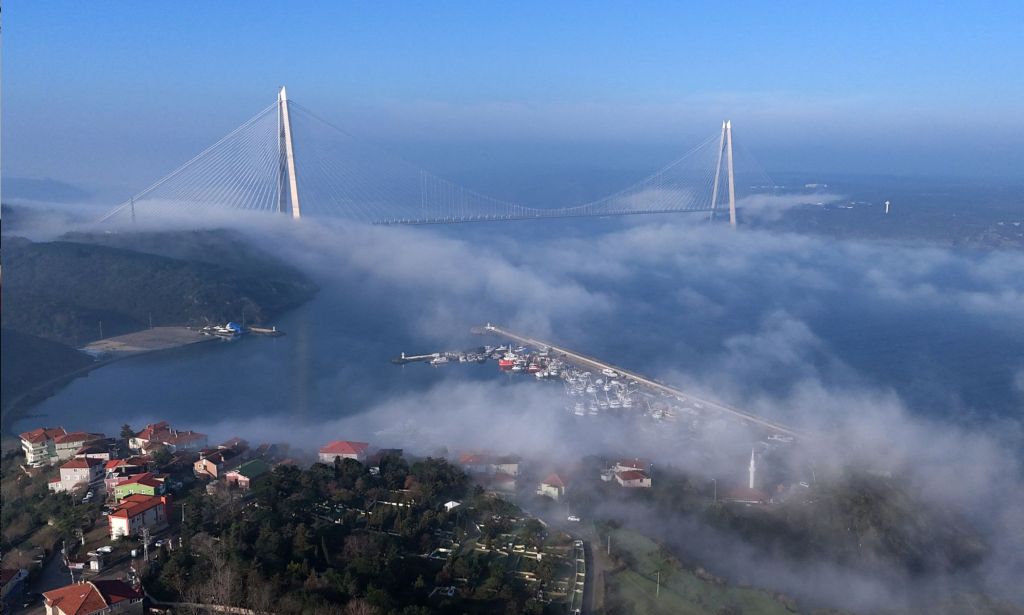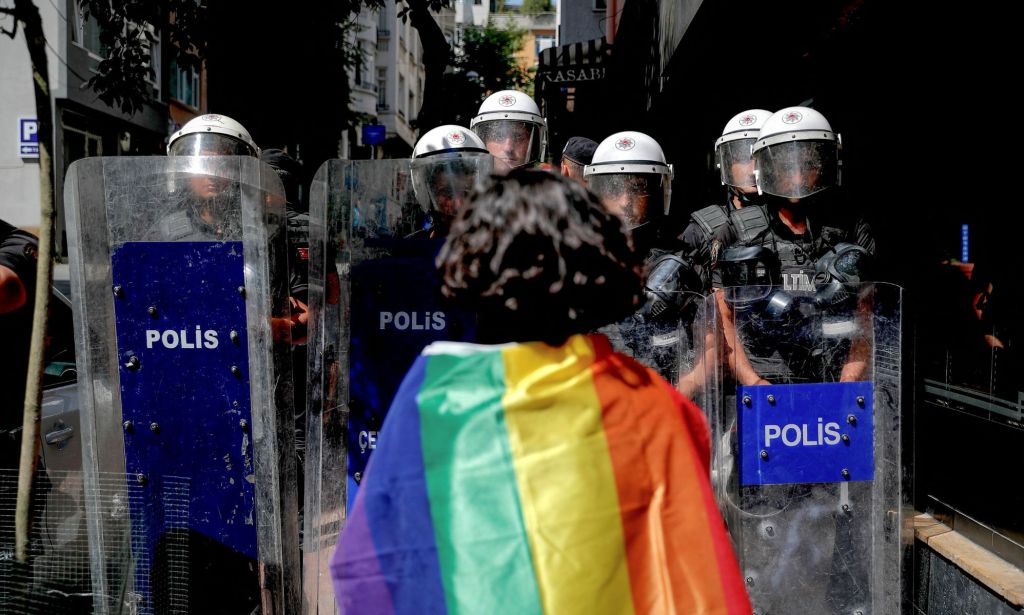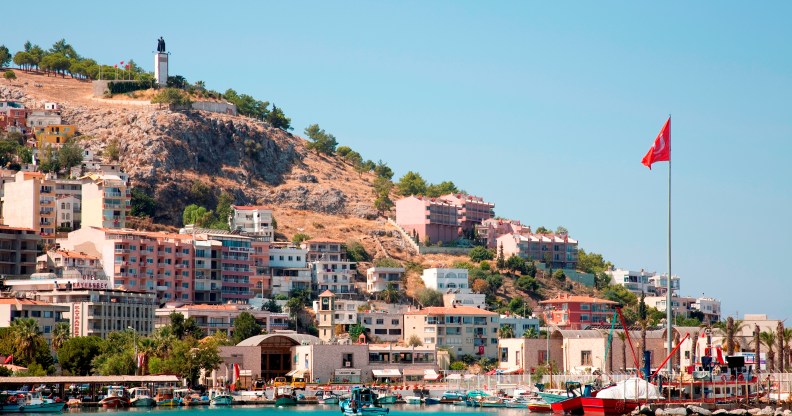
Kusadasi, a beach resort town on Turkey's western Aegean coast. (Marka/Universal Images Group via Getty Images)
Turkey is a hugely popular holiday destination, both for those seeking cost-effective dental care and weight loss surgery, but is it safe for LGBTQ+ people to visit?
First, while same-sex relationships and queer and transgender people are not illegal in Turkey, they offer no legal protection against discrimination in employment, education, housing or healthcare.
Same-sex marriage and civil partnerships are not recognised, and the country is generally very conservative – people outside of major cities can have negative attitudes towards members of the LGBTQ+ community, but that doesn't mean major areas are liberal havens.
 An aerial view of Istanbul. LGBTQ+ rights are complicated in Turkey. (Getty)
An aerial view of Istanbul. LGBTQ+ rights are complicated in Turkey. (Getty)
According to Intrepid Travel, gay couples should be careful about displays of affection except in private, because while public kissing is a bad idea in any relationship, it's especially dangerous for same-sex couples.
Violence and blatant discrimination by the state and Turkish citizens are not uncommon, and indeed LGBTQ+ people in Turkey are increasingly subject to harassment and accusations of “inciting hatred” or “violating public order”.
Human Rights Watch says the country is in the midst of a “deepening human rights crisis,” not all of which has to do with LGBTQ+ rights.
Following anti-government protests in 2013, President Recep Tayyip Erdogan imposed censorship restrictions on the press and social media and suspended Turkey's application for EU membership, while a failed coup attempt in 2016 led to the imposition of a state of emergency.
This gave President Erdogan the opportunity to impose further restrictions on civil liberties and human rights, resulting in Istanbul Pride being banned in 2015 (and then halted after police intervention), and then banned again for two years, following reports of widespread arrests and police violence against those who tried to defy the authorities.
 Turkish police officers detain a protester during a Pride march in Istanbul. (Getty)
Turkish police officers detain a protester during a Pride march in Istanbul. (Getty)
In 2017, the Turkish capital, Ankara, banned all events related to LGBTQ+ rights, citing the need to provide “peace and security.”
The Guardian previously reported that queer people in Turkey are “fearful of what's to come” and feel like the president is waging a war against them.
In 2021, then-Interior Minister Suleyman Soylu dismissed student protesters as “LGBTQ+ perverts” and said the government would not tolerate “perverts who tried to occupy the rector's office,” just days after Erdogan praised young people in Turkey who do not identify as LGBTQ+.
 Istanbul Pride was banned in 2015 and police took strict action against those who did not comply with the order. (Getty)
Istanbul Pride was banned in 2015 and police took strict action against those who did not comply with the order. (Getty)
“We bring our young people into the future, not as LGBTQ+ young people, but as young people from this glorious past. You are not LGBTQ+ young people. You are not young people who destroy, you are young people who heal broken hearts,” the president said.
More recently, Erdogan said he would never be “pro-LGBT” because he believes “the family is sacred,” adding, “In this country, the family foundation is stable. LGBT does not appear in this country. It stands manly and upright. That's what our family is like.”
Meanwhile, a survey conducted by advocacy group KAOS GL found that 90% of LGBTQ+ people in Turkey experience digital violence on a regular basis.
Despite the fact that there are no laws that actively discriminate against the LGBTQ+ community, it is clear that Turkey is not particularly friendly towards LGBTQ+ people.
While this is a tragedy for LGBTQ+ people in Turkey, one might argue that tourists are unlikely to face similar issues, but last year a gay man in Portugal claimed he was arrested and jailed for 20 days in Istanbul for “looking gay” after being near an LGBTQ+ parade that was not sanctioned by the authorities.
In September 2021, a hotel in Bodrum on the southwest coast was told it could not accept reservations for two tourists to share a room, and Fabien Azoulay, a French-Jewish gay man, was jailed in 2018 for buying a small amount of gamma-butyrolactone (GBL) during a visit to Istanbul, unaware that it was a banned drug several months earlier.
Azoulay said he was harassed, beaten and scalded with boiling water by other inmates in a homophobic attack. He served 16 years of his sentence but was released in 2021.
Perhaps even more important when considering your travel plans is the fact that the Foreign, Commonwealth & Development Office is currently advising against travel to all of Turkey, regardless of whether you are LGBTQ+ or not.
If you travel against FCDO advice your travel insurance may be invalidated, and British Embassy staff cannot travel to and assist you directly in areas where the FCDO is advising against travel.



